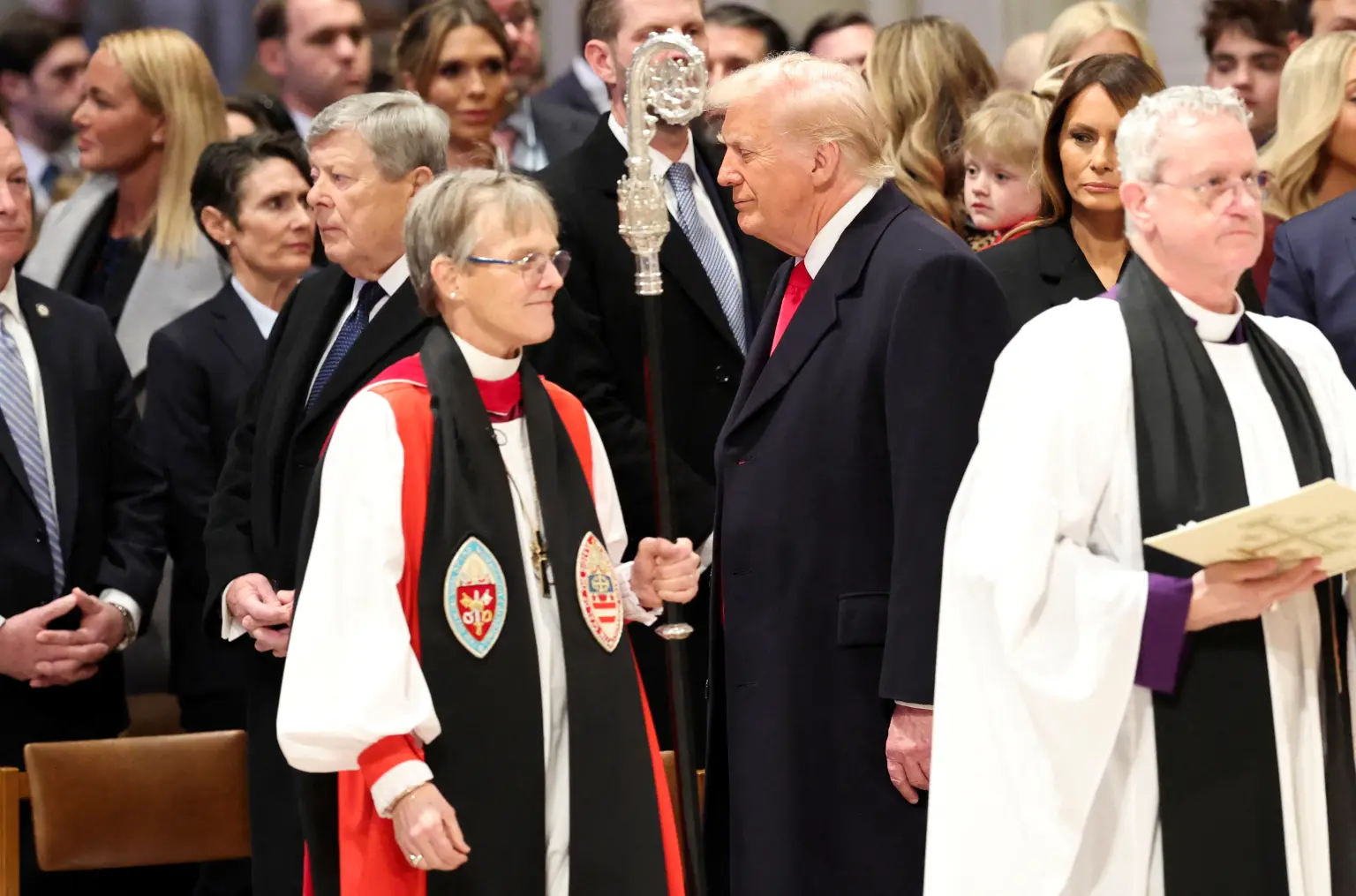The inauguration of Donald Trump as the 47th President of the United States was a historic moment filled with pomp, controversy, and significant discourse. Among the most debated aspects of the event was the sermon delivered by Episcopal Bishop Mariann Budde at Washington’s National Cathedral. Her words, directed at the president, ignited a storm of reactions, leaving many questioning the boundaries between faith and politics.
Bishop Budde, renowned for her progressive views, used her sermon to directly appeal to President Trump, urging him to lead with compassion and consider the fears of marginalized communities. In one striking moment, she implored, “Let me make one last plea, Mr. President,” as she addressed the struggles of LGBTQIA+ youth, immigrants, and other vulnerable groups. Her comment that “gay, lesbian, and transgender children are afraid for their safety and lives” resonated deeply with activists but drew criticism from conservatives who felt her remarks were overly political for the occasion.

The timing of her speech only added fuel to the controversy. Just a day before, President Trump signed executive orders that divided public opinion. These orders included ending birthright citizenship, declaring a national emergency at the southern border, and emphasizing biological gender distinctions. Bishop Budde responded by highlighting the vital contributions of immigrants, saying, “Many who harvest our crops, work in hospitals, or clean our offices might lack documentation, but they are good neighbors and taxpayers.” Her statements were seen as a direct challenge to Trump’s policies.
This wasn’t the first time Bishop Budde publicly criticized Donald Trump. She gained national attention in 2020 after condemning him for holding a Bible outside St. John’s Episcopal Church following the forceful dispersal of protesters. At that time, she accused the then-president of inciting division and called for moral leadership.
The sermon sparked heated reactions from across the political spectrum. Many praised her bravery in using such a significant platform to speak on issues of social justice, while others condemned her for politicizing a religious ceremony. Georgia Republican Representative Mike Collins even joked about adding her to a “deportation list,” illustrating the divisiveness of her remarks.

Despite the criticism, Bishop Budde remained steadfast, closing her sermon with a plea for compassion. She called on the president to protect families facing separation and to make the nation a refuge for those escaping violence and persecution. Quoting scripture, she reminded the audience, “Our God teaches us to show mercy to the stranger, for we were all once strangers in this land.”
The incident has reignited discussions about the role of religious leaders in political discourse. Should they use their platforms to address societal issues, or should they focus solely on spiritual teachings? Bishop Budde’s sermon has amplified these debates, creating a lasting impact on how faith and politics intersect.


